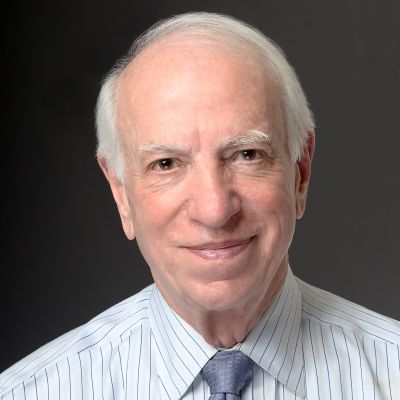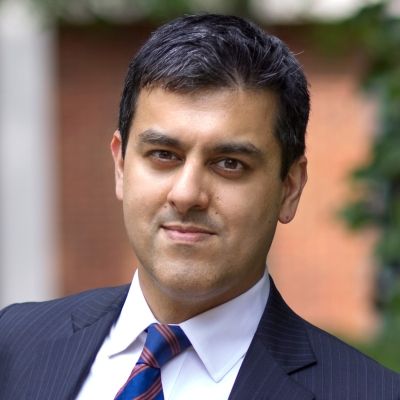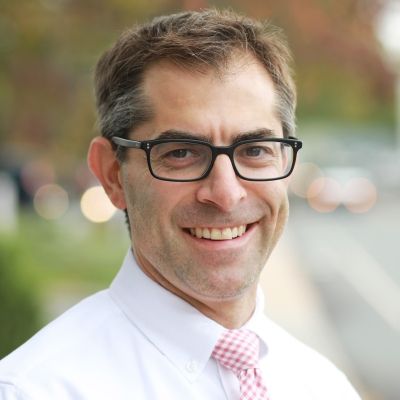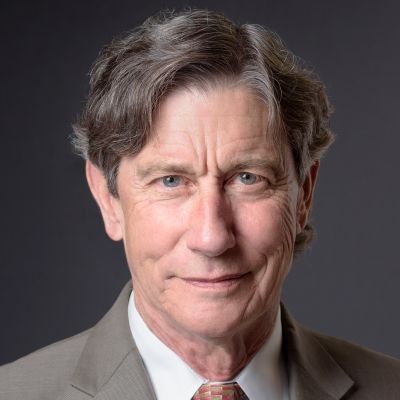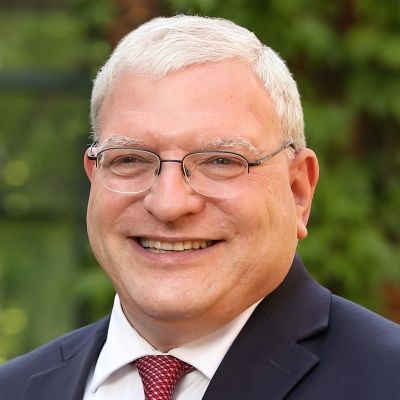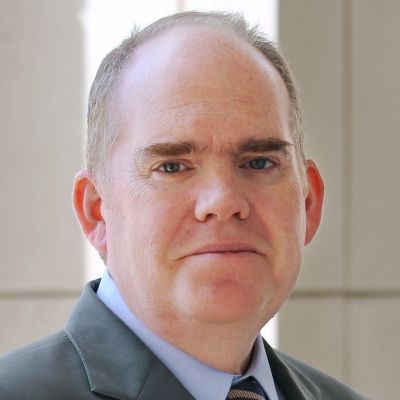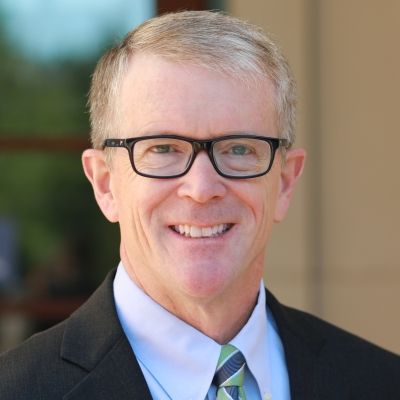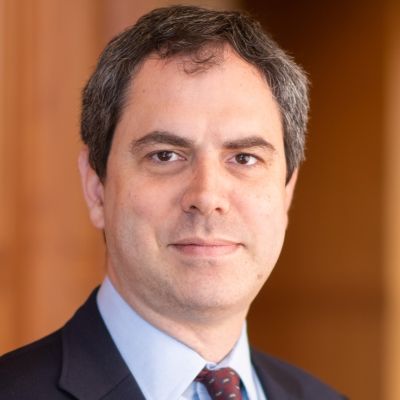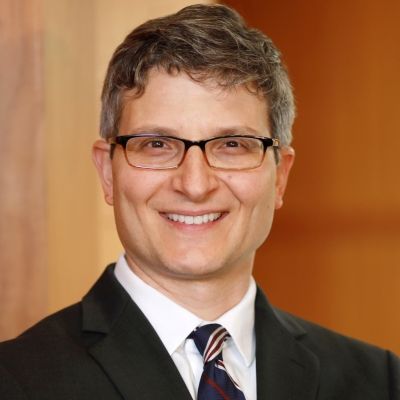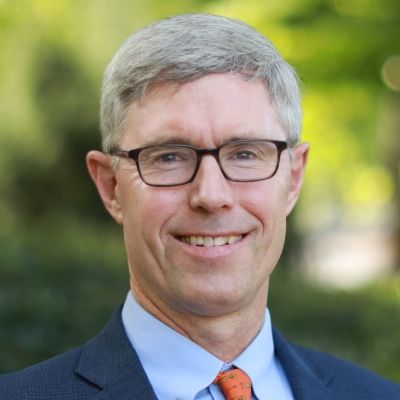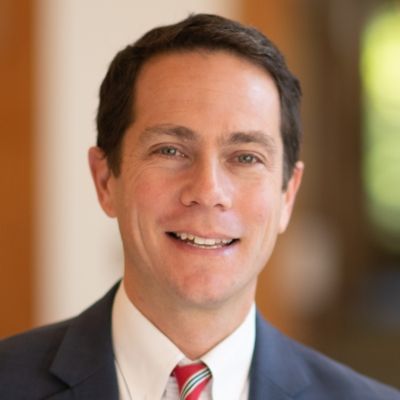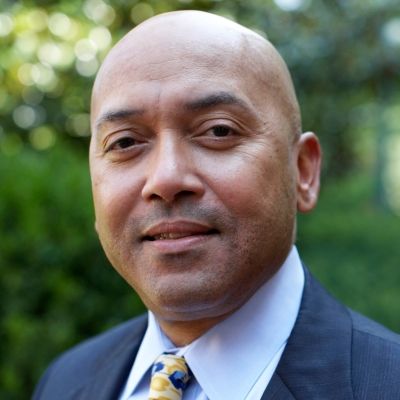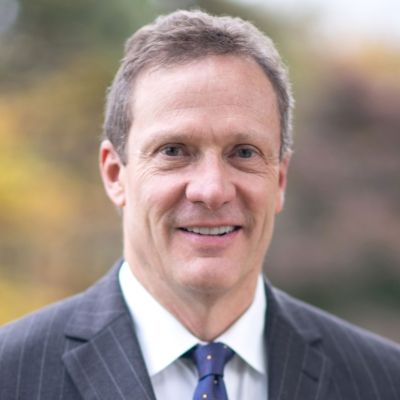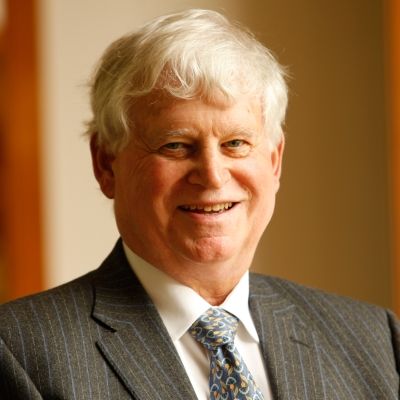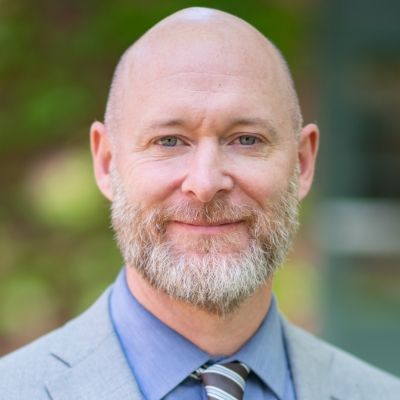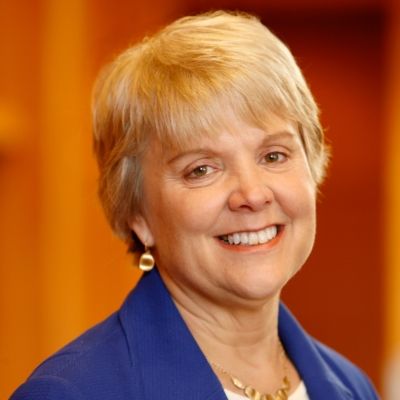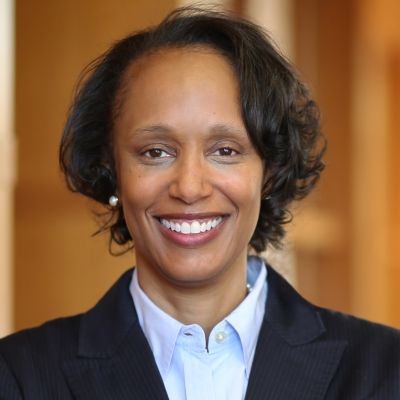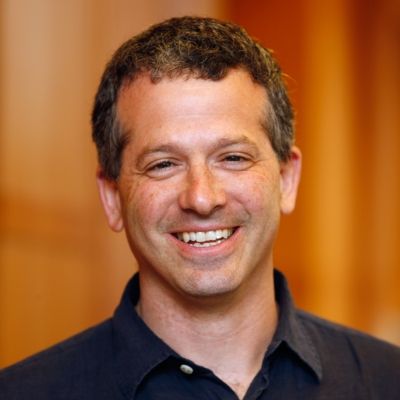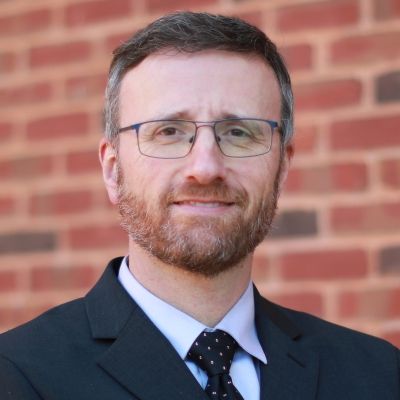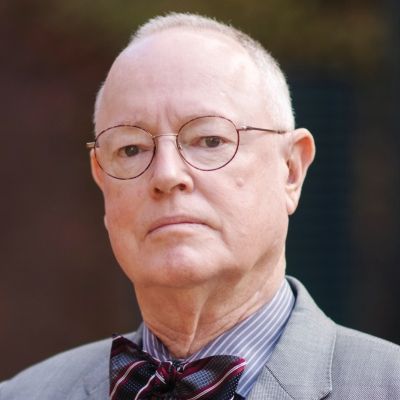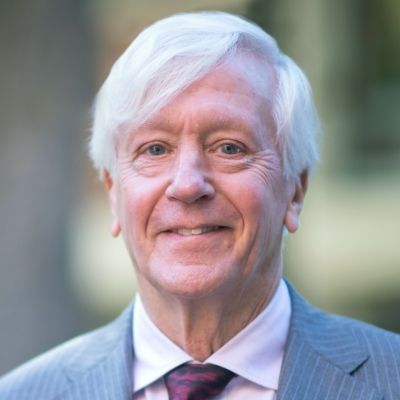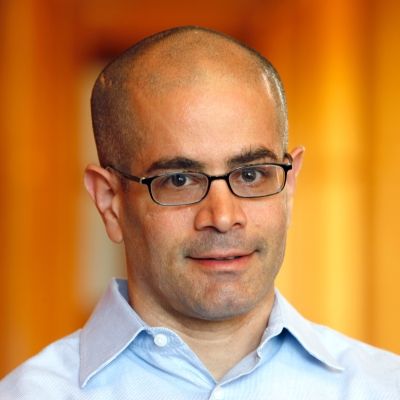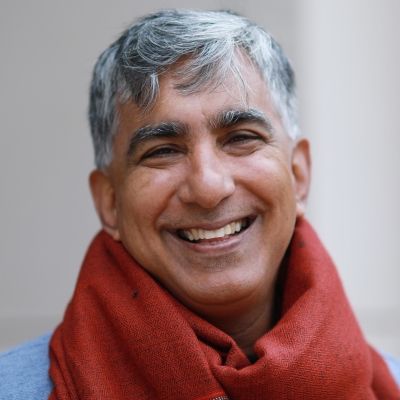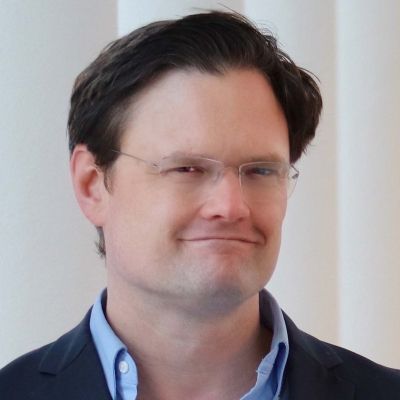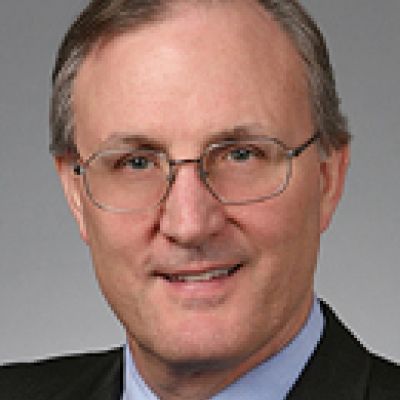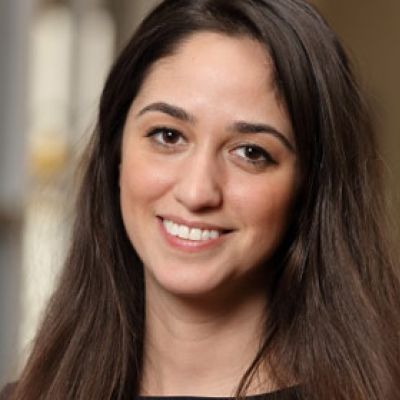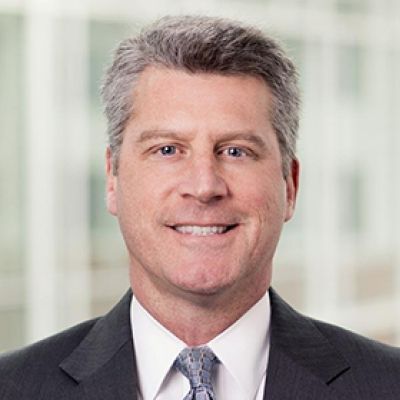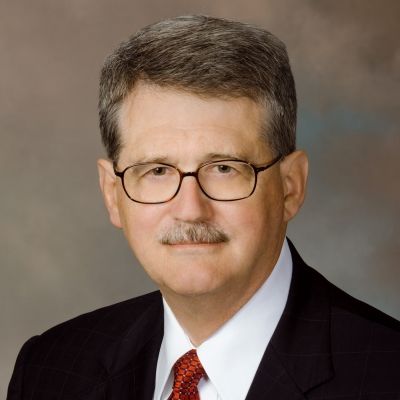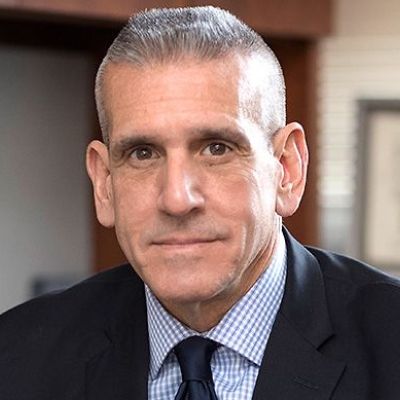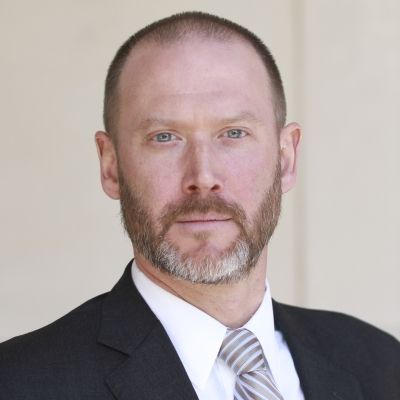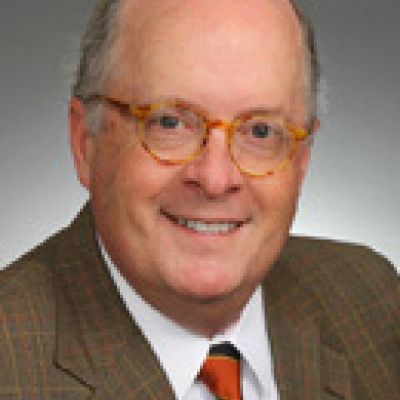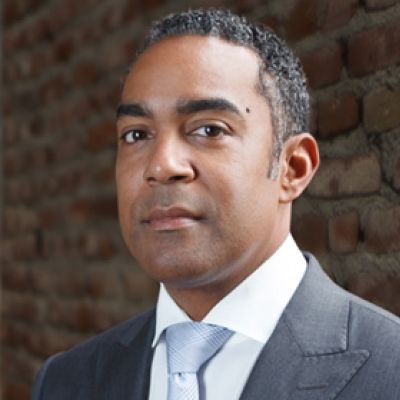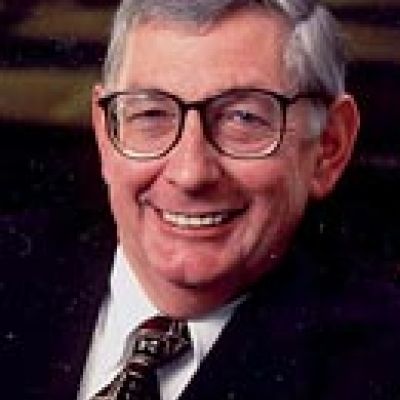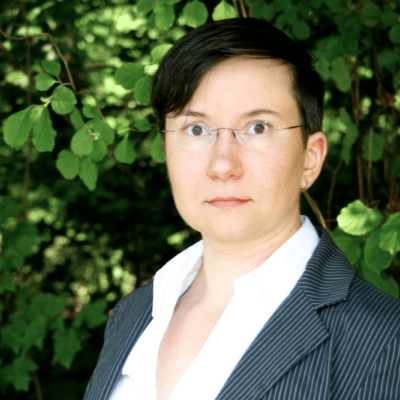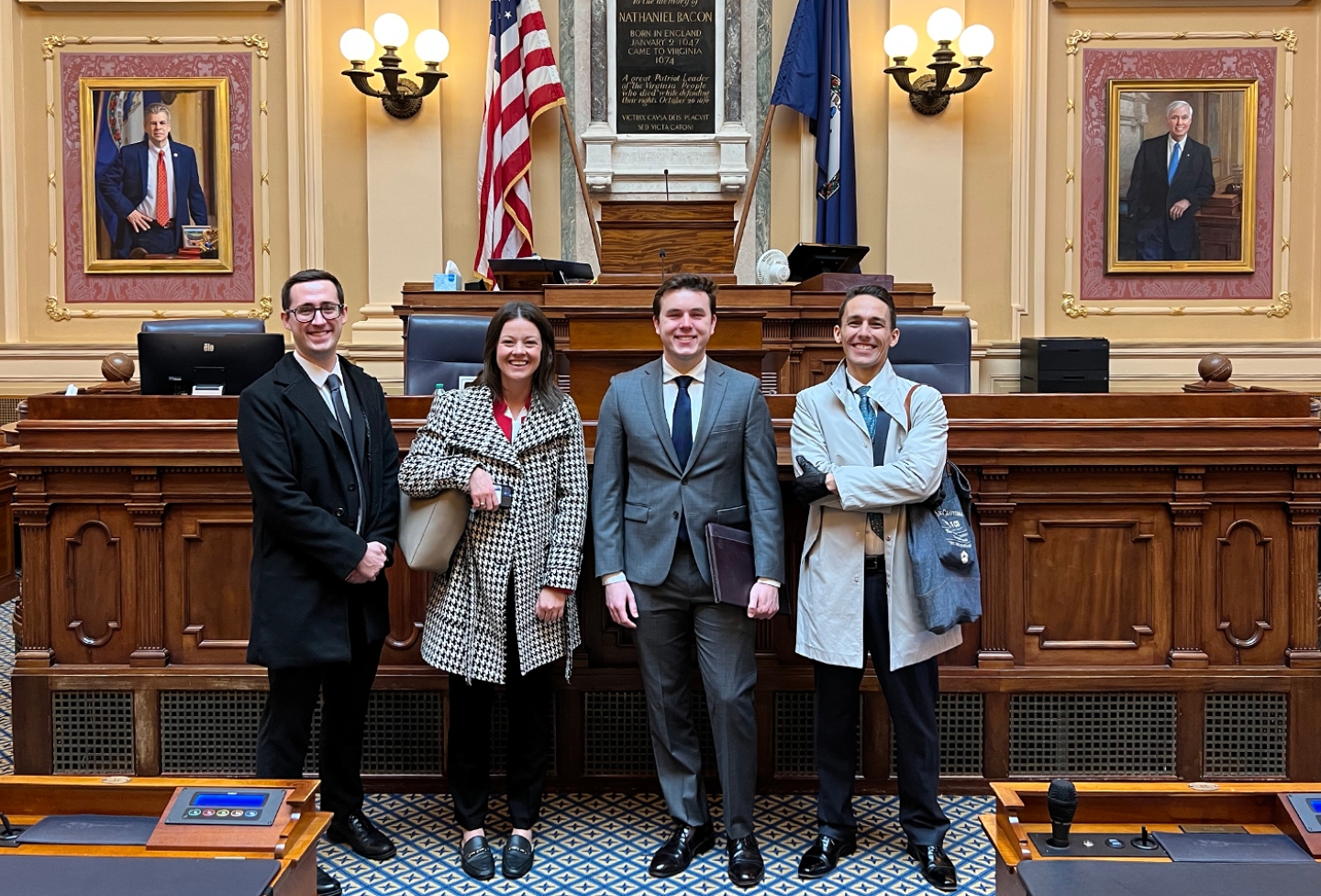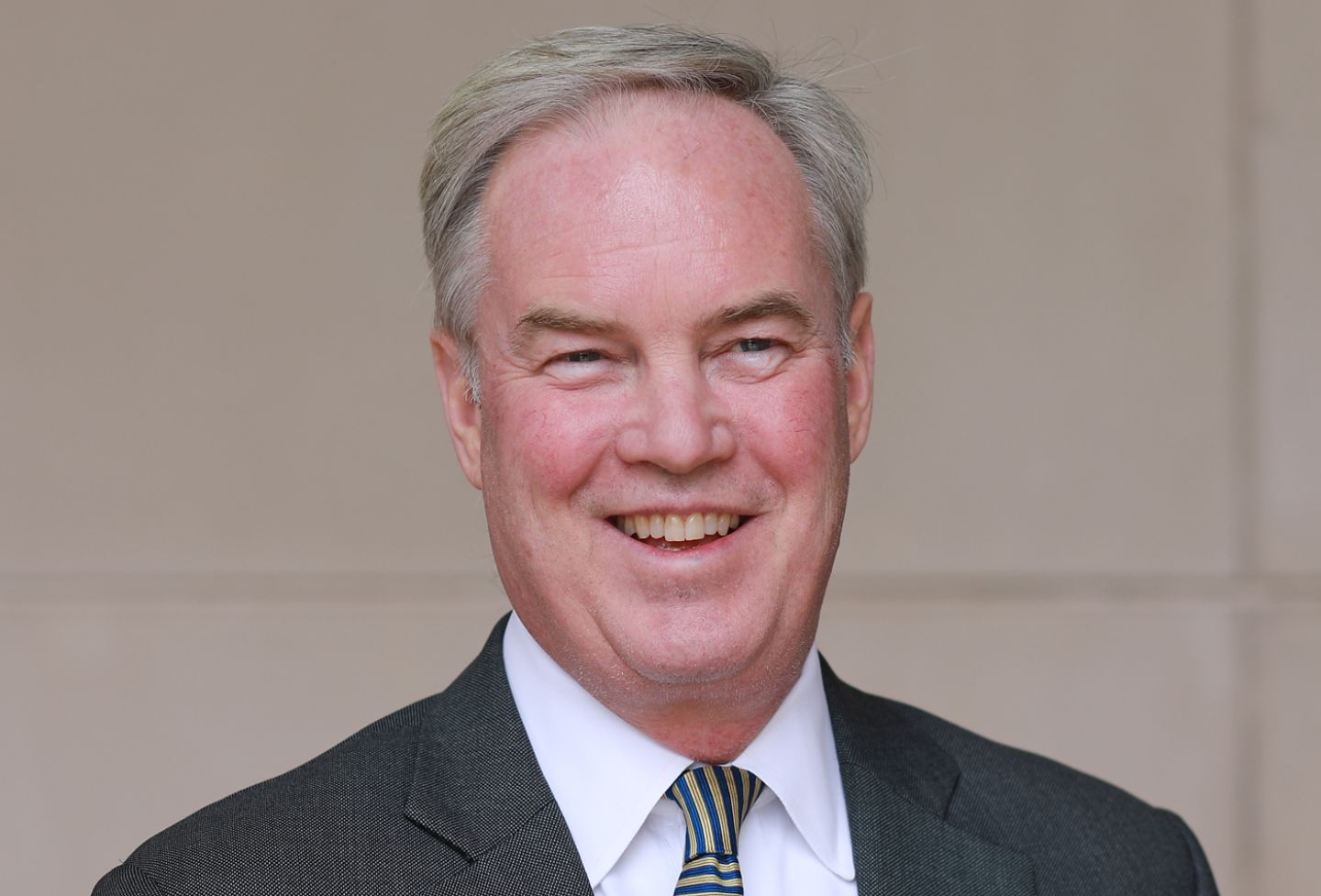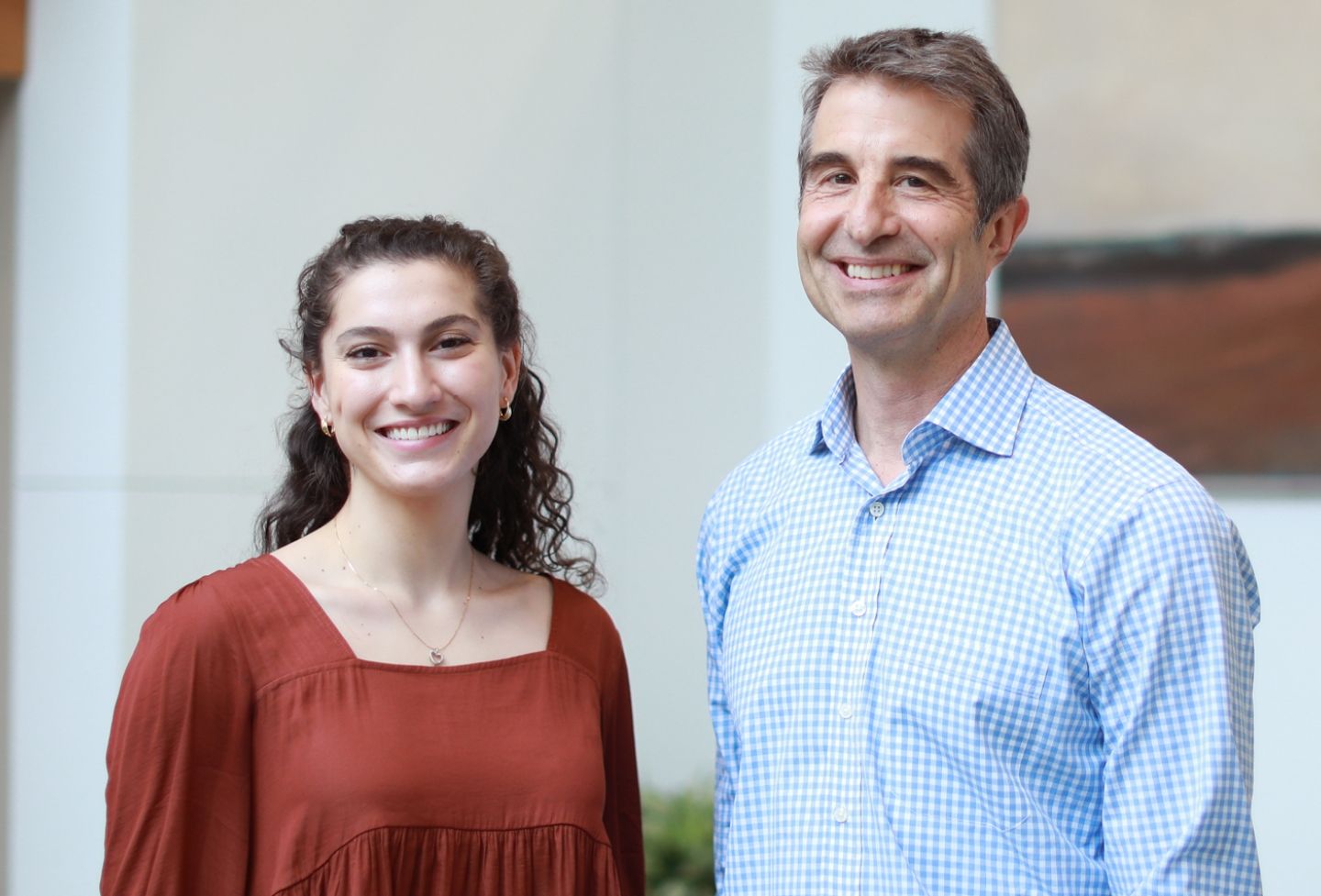About the Program
Lawyers working with public institutions must understand the complex relationship between law and public policy to be effective at shaping it. Virginia’s strength in public policy and regulation law draws from faculty members who have brought their experiences working for the government or other institutions back to the classroom. These connections benefit students in a variety of ways. When professors work for Congress or federal agencies such as the State Department, volunteer for government commissions, consult for state and local governments, or work with advocacy organizations that seek to influence public policy, the experiences enrich their teaching, give students an opportunity to network with practicing attorneys in a variety of fields, and inspire fresh insights in research and scholarship.
Connections With D.C.
The Law School's proximity to Washington, D.C., provides rich opportunities for a close-up view of how regulations, policies and the government interact. The location also allows top government lawyers and Washington-based practitioners to teach part-time at Virginia, which exposes students to the kinds of concrete issues they may one day face as government officials, practicing lawyers or policy advocates.
Alumni Network
Virginia's alumni also connect the school and students to Washington and other public policy networks. The Law School’s graduates work for the White House (Cynthia Hogan ’84, chief counsel to the vice president); the Justice Department (four sitting U.S. attorneys in the Western District of Virginia, Delaware, South Dakota and the Northern District of Alabama); Congress (John Mullan ’83, chief majority counsel, House Subcommittee on Commerce, Manufacturing and Trade); the military (Brig. Gen. Richard Gross ’93, legal counsel to the chairman of the Joint Chiefs of Staff); and numerous federal agencies (NASA General Counsel Michael C. Wholley ’77)
Gradualism should have won out in Dobbs v. Jackson Women’s Health, exerting gravitational influence on the majority and dissenters alike. In general...
There is a live debate going on over whether antitrust should take a broader view of the economics of market concentration. When antitrust reformers...
In an era defined by partisan rifts and government gridlock, many celebrate the rare issues that prompt bipartisan consensus. But extreme consensus...
Ian Ayres
We propose the creation of a Prosecutor Jury—a mechanism designed to balance the need to hold politicians accountable for their crimes, and the need...
More
The issue of state separation of powers generally is not one that the federal courts have had much occasion to address. Recent issues have arisen...
Public nuisance has lived many lives. A centuries-old doctrine defined as an unreasonable interference with a right common to the public, it is...
Faculty Director(s)
Richard J. Bonnie
Harrison Foundation Professor of Medicine and Law Emeritus
Gradualism should have won out in Dobbs v. Jackson Women’s Health, exerting gravitational influence on the majority and dissenters alike. In general...
There is a live debate going on over whether antitrust should take a broader view of the economics of market concentration. When antitrust reformers...
In an era defined by partisan rifts and government gridlock, many celebrate the rare issues that prompt bipartisan consensus. But extreme consensus...
Ian Ayres
We propose the creation of a Prosecutor Jury—a mechanism designed to balance the need to hold politicians accountable for their crimes, and the need...
More
The issue of state separation of powers generally is not one that the federal courts have had much occasion to address. Recent issues have arisen...
Public nuisance has lived many lives. A centuries-old doctrine defined as an unreasonable interference with a right common to the public, it is...
An important administrative law doctrine developed by the lower federal courts, called remand without vacatur, rests on a mistaken premise. Courts...
In Cedar Point Nursery v. Hassid, the United States Supreme Court ruled that a California state regulation granting labor organizations a limited...
More
Violations of intimate privacy can be never ending. As long as nonconsensual pornography and deepfake sex videos remain online, privacy violations...
As this Essay shows, the fertility discourse of the last half century deals with the profound effects that come from the transformation of the economy...
More
In the period immediately preceding the Constitution’s adoption, New Yorkers engaged in a spirited debate over whether a proposed delegation from the...
More
Governments regulate private conduct. They also exercise rights of ownership and contract that are like those of private people. From the founding to...
More
A number of technological and political forces have transformed the once staid and insider dominated notice-and-comment process into a forum for large...
More
Jennifer Mascott
Decisionmaking in the modern executive branch frequently rests on a convenient formalism. Ultimate power is typically vested in high-level...
Scholars and policy makers have long debated whether corporations should serve social purposes at the expense of shareholder wealth. The SEC has...
More
Citation counts are a common quantitative metric used by researchers and analysts to assess scholarly output. When U.S. News & World Report announced...
The Supreme Court’s most recent foray into clarifying when courts ought to “defer” to agency interpretations of their own regulations—Kisor v. Wilkie—...
Land use regulation and zoning have long been core functions of local governments. Critics of local land use practices, however, assert that local...
The Supreme Court has recently signaled its interest in developing a new nondelegation test, one that would have courts more aggressively police...
Ryan Calo
The legitimacy of the administrative state is premised on our faith in agency expertise. Despite their extra-constitutional structure, administrative...
This Essay explores how private landowners bargain with federal environmental regulatory authorities under two important federal environmental...
Christopher S. Elmendorf
Eric Biber
Paavo Monkkonen
...Starting in the 1970s, the West Coast states coalesced around roughly similar responses to the problem of excessive local restrictions on housing...
Section 706 of title 5 instructs courts reviewing agency action to "hold unlawful and set aside" actions that fail the tests it sets out. Trump v...
Cass R. Sunstein
In 1984, the Supreme Court declared that courts should uphold agency interpretations of ambiguous statutory provisions, so long as those...
More
Health data regulation can be thought of at two levels. First, the micro- level of regulation has to do with Electronic Health Records (EHRs). Second...
Sometimes the judicial Constitution is not the one that matters. The administrative state is capable of creating divergent legal frameworks that...
Christopher S. Elmendorf
Eric Biber
Paavo Monkkonen
... Since 1980, California has had an ambitious planning framework on the books to make local governments accommodate their fair share of regionally...
More
The concept of checks and balances is a core tenet of our democracy; we fear letting any single institution become overly powerful or insufficiently...
In the wake of the FCC’s 2018 decision to rescind federal network neutrality rules, several states have implemented their own network neutrality...
Modern doctrine about judicial review of administrative action traces back to Association of Data Processing Service Organizations v. Camp (1970)...
In a series of recent cases, the Supreme Court has vigorously applied the presumption against extraterritoriality to curtail the territorial reach of...
One of the signature rulemaking initiatives of the Obama administration was the Fiduciary Rule, which redefined the relationship between retirement...
The disputed scope of the President’s authority to remove subordinates in the executive branch, and to direct them in the performance of their...
Drugs often induce unintended, adverse physiological reactions in those that take them—what we commonly refer to as “side-effects.” However, drugs can...
Gabriel V. Rauterberg
The U.S. equity markets have undergone profound changes since the late 20th century. Electronic order books have almost entirely replaced manual floor...
One of the most disputed policy initiatives of the Obama administration was the Department of Labor’s fiduciary rule, which subjects brokers and...
In my response to reviews by Christopher Agee, Christopher Schmidt, Karen Tani, and Laura Weinrib, I explain some of the challenges of writing Vagrant...
Among the structural provisions of the Constitution are a series of rules specifying the method by which the federal government will be staffed. One...
In the fall of 1912 — while one of the most consequential presidential campaigns in United States history raged around them — William Howard Taft...
The Supreme Court during the Chief Justiceship of John Marshall is associated with endorsement of broad regulatory powers in Congress and broad...
Actors in our criminal justice system increasingly rely on computer algorithms to help them predict how dangerous certain people and certain...
This article examines the problem of legislative entrenchment through a particular focus on federal fiscal policy. The conventional academic debate...
This chapter, written for an edited volume on campaign finance, examines aggregate contribution limits and their potential to combat corruption. Base...
This essay makes two claims: transparency in government causes the very corruption it aims to prevent, and the problem is universal. Some scholars...
With the increased politicization of agency rulemaking and the reduced cost of participating in the notice-and-comment rulemaking process...
Recent breakthroughs have moved heritable human genetic modification from the realm of science fiction to the cusp of reality, lending urgency to...
Many popular and academic commentators identify deregulation as a cause of the 2007-08 financial crisis. Some argue that the Gramm-Leach-Bliley Act...
There is, without question, a public health crisis in the United States arising from both illicit and prescription opioid misuse, addiction, and...
American cities are under attack. The last few years have witnessed an explosion of preemptive legislation challenging and overriding municipal...
When the government enacts laws or regulations that accommodate religious believers, it may not impose significant costs on identifiable third...
In the contemporary world, the domains of laws overlap a lot. With human activity (business, family, political, creative) unfolding at a greater...
This article, presented at a symposium occasioned by the publication of A.J. Bellia’ and Bradford Clark’s The Law of Nations and the United States...
The reliance on domestic sales law in interpreting the CISG’s provisions has been noted and condemned by commentators and some courts. Seldom...
Megan Donaldson’s The Survival of the Secret Treaty: Publicity, Secrecy, and Legality in the International Order recounts the ways in which lawyers...
This Essay describes the legal and policy issues raised by any systematic effort to deport unauthorized immigrants based on information the government...
More
Judicial deference to executive statutory interpretation - a doctrine now commonly associated with the Supreme Court’s decision in Chevron v...
Legislatures are critical to international law governance for two related reasons. First, most are involved in several stages of treaty creation and...
This article sets out the case for repealing the $1 million tax cap on executive pay. The cap is easily avoided and, when not avoided, widely...
Federal courts have limited the legal remedies for constitutional violations in policing to the point that they do not discourage police misconduct...
Working from a sample of all consumer class actions filed in the Northern District of Illinois over the period 2010-2012 (totaling 510), this paper...
Matthew S. Brooker
The shared presidential and congressional responsibility to oversee administrative agencies creates an opportunity for productive public...
It has been over forty years since the Supreme Court declared a class suspect under the Equal Protection Clause. In that time, the Court has denied...
This speech, published by the Texas Review of Law & Politics, addresses the history of the concept of judicial deference to executive statutory...
This paper, prepared for a symposium on administrative law hosted by the University of Missouri School of Law, analyzes the relationship between Chief...
The Bush Administration took a maximalist approach to the jus ad bellum and jus in bello, staking out broad claims about what international law...
Emily Reeder
This symposium paper challenges the Supreme Court’s most recent campaign finance decision, McCutcheon v. FEC. True to recent form, the Court in that...
This short comment on Natapoff’s “Misdemeanor Decriminalization” (2015) offers reasons for skepticism about how broadly we can expect...
Plea bargaining in the United States is in critical respects unregulated, and a key reason is the marginal role to which judges have been relegated...
What causes black infants to die at two to three times the rate of white infants and what can be done to address those causes? For decades, every...
Brian Barnes
This symposium piece tackles an important issue in campaign finance: the relationship between coordinated expenditures and corruption. Only one form...
The mortgage default decision is part of a complex household credit management problem. We examine how factors affecting mortgage default spill over...
Recent years have witnessed a dramatic increase in digital information and connected devices, but constant revelations about hacks make painfully...
The heart of insurance – what enables insurance to function – is risk aversion. It follows from the fact that potential policyholders are risk...
Benjamin F. Aiken
Disclosure laws require individuals and organizations that spend money on political speech to make public their identities. The Supreme Court and many...
Sincere rules mandate behavior a rule-maker wants, while insincere rules mandate different behavior. To illustrate, if a legislator wants cars to...
Voter ID laws have provoked a fierce controversy in politics and public law. Supporters claim that such laws deter fraudulent votes and protect the...
Dozens of federal statutes authorize federal agencies to give money and power to local police departments and municipalities in order to improve...
The intimate, and often underappreciated, relationship between political parties, the presidency, and the administrative state has profound...
Guangya Liu
Today, more than five years after Dodd-Frank was first signed into law, uncertainty surrounds many aspects of the Volcker Rule’s application and...
Administrative agencies engage in constitutionalism. They resolve questions of statutory meaning and scope that implicate constitutional questions...
This paper explicates the four building blocks underlying emission standard guidelines in the U.S. EPA's proposed clean power plan for reducing carbon...
Building on the U.S. Supreme Court’s recent decision in Jones v. Harris Associates, this paper presents the first comprehensive empirical study of...
This paper identifies and analyzes a recent trend toward “clean” federal tax legislation. Existing explanations of the tax-legislative process...
Judicial independence is a cornerstone of American constitutionalism. It empowers judges to check the other branches of government and resolve cases...
This encyclopedia entry provides an overview of law governing the police. As it notes, police officers are granted immense authority by the state to...
The enforcement of tax laws affects the distribution of tax burdens. Many tax enforcement regimes incorporate taxpayer-initiated administrative...
The presidential mandate that agency rulemakings be subjected to cost-benefit analysis and regulatory review is one of the most controversial...
Congress passed the Civil Rights Act of 1964 after nearly 90 years in which it enacted no major civil rights legislation. The 1964 Act stood out then...
Prominent judges and scholars have criticized the familiar Chevron deference scheme on the ground that its two steps are redundant. But each step of...
What determines the level of deference the Supreme Court gives to agency interpretations of statutes? One explanation is that deference choices accord...
President Obama’s 2011 Executive Order 13,563 on cost-benefit analysis (CBA) authorizes agencies to consider “human dignity” in identifying the costs...
Congress uses the income tax to achieve policy goals. States import federal tax policies into their own tax systems when they incorporate by reference...
Campaign finance law is in shambles, and many believe that wealthy, shadowy interests dominate American politics. Reformers have rested their hopes...
Judges claim to resolve ambiguities in initiatives by identifying and giving force to “voter intent,” but scholars reject that on the ground that...
The Wickersham Commission report on The Third Degree, found in the Commission’s famous Report on Lawlessness in Law Enforcement ended with the...
This article employs section 619 of the Dodd-Frank Act, popularly known as the Volcker rule, to examine agency level activity during the pre-proposal...
Congress rarely participates in litigation about the meaning of federal law. By contrast, the executive branch joins in federal litigation on a...
More
Michael S. Knoll
Prohibitions of tax discrimination have long appeared in constitutions, tax treaties, trade treaties and other sources, but despite their ubiquity...
With respect to deterring police misconduct, federal remedies are almost as good as they are ever going to get. Federal remedies for police...
The legal problem of policing is how to regulate police authority to permit officers to enforce law while also protecting individual liberty and...
This essay, to be published in the Journal of Law and Politics, describes how the debate over disclosure in campaign finance has changed and how the...
This article charts a middle way in recent scholarship on the Thirteenth Amendment, which tends toward extremes. One view is that the amendment might...
This Essay, written for a colloquium considering the effects of the recent financial crisis on local governments, asks whether bondholders or citizens...
Recent state and municipal budget crises have generated a great deal of consternation among market participants and policymakers; they have also led...
Genetically engineered plants and animals have become a large part of the food we consume. The United States is the world’s largest producer of...
Congress regularly enacts legislation providing for redundant administrative programs. For example, there are more than 100 federal programs for...
Scholars and courts recognize that the federal government uses its broad spending power to enlist states in achieving federal goals, thereby expanding...
Helen Norton
No longer confined to isolated corners of the web, cyber hate now enjoys a major presence on popular social media sites. The Facebook group “Kill a...
Frank Pasquale
A new domestic intelligence network has made vast amounts of data available to federal and state agencies and law enforcement officials. The network...
How the myriad bank regulatory agencies, including the Fed, SEC, FDIC, OCC, helped unleash the banks to create more and more destructive derivatives...
Earlier this year, Toyota issued recalls on over eight million vehicles because of faulty acceleration. Assume that the National Highway Traffic...
More
Positive political theory (PPT) explanations of the U.S. administrative state and administrative law emphasize the political incentives created by U.S...
Debates about the obligation to obey the law have been around for literally thousands of years, but the empirical side has received much less...
This essay, a chapter in a book on international investment law and comparative public law forthcoming from Oxford University Press, reviews the...
The public can now “friend” the White House and scores of agencies on social networks, virtual worlds, and video-sharing sites. The Obama...
Governments often deliver social welfare benefits through “tax expenditures,” provisions of the tax code (such as home mortgage deductions) designed...
This Article examines local efforts to regulate mobile capital. Despite the conventional wisdom that sub-national governments cannot effectively...
Joshua M. Levine
This paper examines conflicting ballot proposals - two or more measures that run contrary to one another and that citizens vote on in the same...
This article argues that international greenhouse gas (GHG) cap-and-trade schemes suffer from inherent problems of enforceability and verifiability...
With their focus on the originalist bona fides of the unitary executive and the modern administrative state’s numerous violations of the theory...
Double taxation of corporate profits distorts the choice of business form, the debt and equity capitalization of companies, and the character and...
The European Court of Justice (ECJ) has come under increasing criticism for overstepping its institutional authority in tax cases by invalidating...
The information revolution has made America more dependent on its electronic communications infrastructure than ever before. In additional to the...
This article addresses the timely yet persistent question of how best to regulate access to telecommunications networks. Concerns that private firms...
When modern American courts assess the constitutionality of a statute, they often investigate the possibility that the enacting legislature had hidden...
This Essay proposes a typology of presidential powers that seeks to improve how scholars discuss the substance of presidential powers.
The goal is...
Recent Presidents have claimed a power to disregard statutes that they deem unconstitutional, prompting critics to make an array of arguments against...
Scholars and politicians insist that declarations of war are relics of the past. As proof, they note that in over two centuries the United States has...
Absent from war-powers scholarship is an account of when war and military powers separate and when they overlap. Making arguments sounding in text...
In the last four decades, characterizations of the Presidency have careened from the “imperial presidency” to the “imperiled presidency.” From an...
Automated information systems offer an opportunity to improve the democratic legitimacy of the administrative state. Today, agencies transfer crucial...
Distinct and complementary procedures for adjudications and rulemaking lie at the heart of twentieth-century administrative law. Due process required...
Under the standard the European Court of Justice (ECJ) uses to evaluate tax discrimination cases, a Member State discriminates when it taxes cross...
Can Congress pass under one of its powers a statute that conflicts with the language of another Congressional power? This unsettled question has...
In this short piece, I argue that the President has a duty to veto bills when he believes they contain provisions that are unconstitutional. He acts...
According to the Supreme Court's current doctrine, Congress generally may not create private causes of action against unconsenting States. It may do...
The Article elucidates the Intellectual Property Clause by studying the neglected record from the Constitutional Convention of 1787 pertaining to it...
This Article conducts an empirical experiment to shed light on a simply stated, but vexing, question in contract law: What is the optimal precision of...
Despite generating thousands of cases on important public issues, the single subject rule remains a source of uncertainty and inconsistency. The root...
As long as some courts review the work of others, there will be situations where governing precedent shifts during the interim. Although such...
Jonathan Klick
Behavioral law and economics scholars who advance paternalistic policy proposals typically employ static models of decision-making behavior, despite...
In the Constitution’s earliest days, before there were any federal judges, members of the House engaged in the young nation’s first constitutional...
This reply discusses John Harrison's insightful "Addition by Subtraction," which is a response to "Removal and Tenure in Office." The piece suggests...
Conventional wisdom supposes that the President enjoys a power to remove all presidentially appointed officers, save for judges. A corollary of this...
In How To Remove a Federal Judge, we argued that at the Founding, “good behavior” was a term of art referring to a generic tenure that could be...
This essay considers the concept of libertarian paternalism recently advanced by Sunstein and Thaler and argues that, on close inspection, this...
The rapid expansion of chain stores during the 1920s and 30s, especially the Great Atlantic and Pacific Tea Company (A&P), excited significant popular...
Since Watergate, legal scholars have been prominent participants in a larger debate about the President's constitutional relationship to prosecutions...
Michael D. Ramsey
This article addresses leading objections to the theory that the President enjoys a residual foreign affairs power by virtue of Article II, Section 1...
Larry Alexander
May Congress enact laws that instruct courts and other interpreters how to interpret future laws? Although Congress has understood its powers to...
Larry Alexander
"Textualism" is a very general and abstract term that represents a variety of views about the interpretation of legal texts. One strand of textualism...
"Procedural Justice" offers a theory of procedural fairness for civil dispute resolution. The core idea behind the theory is the procedural legitimacy...
Scott Baker
Lawmakers often have an incentive to avoid making important policy choices, shifting responsibility for the outcomes of those choices onto other...
Larry Alexander
The nondelegation doctrine has roots that extend as far back as three centuries, or so most of us suppose. In The Second Treatise of Government, John...
The draft article attempts to reconstruct the essential meaning of executive power by recounting the way political theorists and others used the...
A President who chooses to seek legislative approval of a treaty risks delay, textual modification, and even outright defeat. Neither the Constitution...
Michael D. Ramsey
This article argues for a comprehensive framework for the source and allocation of the foreign affairs powers of the U.S. government, based on the...
Whether and how the federal securities laws should restrict insider trading is one of the most hotly debated topics in the securities law literature...
When a government contracts with a private firm to supply a service previously supplied by the government, questions arise as to whether the private...
The Internet's power as a communications medium has been the focus of a great deal of attention, but the Internet still lacks uniform and readily...
Samuel Issacharoff
Governing Through Intermediaries explores political representation through the lens of agency costs. In particular, it looks at the role...
Title IX of the Education Amendments of 1972 generally prohibits sex discrimination by education institutions that receive federal funds. In a series...
Although some have praised United States v. O'Hagan for bringing coherence and stability to the federal insider trader regime, the case actually...
Using the Line Item Veto Act as a backdrop, the Article contends that the Constitution permits legislative delegations of the power to modify or...
The United States Supreme Court validated the misappropriation theory in United States v. O'Hagan, but unfortunately rendered a confusing opinion...
The large losses suffered by investors in financial derivatives during recent years have prompted a wave of litigation, as well as proposals from...
Resident Faculty
Resident Faculty
Administrative law, civil procedure, computer crime, federal courts, national security law
Psychiatry and criminal law, mental health law, bioethics, public health
Criminal procedure and criminal defense law
Environmental and land use law
Contracts and professional responsibility
Criminal law, feminist jurisprudence and women's issues
Corporations, securities and real estate law; consumer financial markets
Tax policy, legislative process and legal ethics
Intellectual property, patents, administrative law
Law and economics, quantitative methods/statistics in the law
Legislation, election law, law and economics, and direct democracy
Criminal law, criminal procedure, policing and civil rights
Tax law and policy, behavioral economics
Bankruptcy and consumer finance law
Environmental and regulatory law, energy policy, climate change policy
Contracts, property and real estate; critical race theory
Law and economics, environmental liability
Corporate law and securities, industrial and intellectual property, economic regulation and history
Environmental law and climate change, administrative law
Property, corporations and land conservation, nonprofit organizations
State, international taxation and policy
Constitutional law and civil procedure; federal courts
Food and drug law, health law, animal law
Education law, Civil rights, Affirmative action, Desegregation and integration, Race, Sexual discrimination and harrassment
Separation of church and state, property, local government and land use
International law, including international environmental law and counterfactual diplomatic history
Special education, child advocacy and juvenile justice
Health law and bioethics
International law, business and economics
Employment law and discrimination, contracts, contract theory, law and economics
Legal history, constitutional law, torts
Federal court system and civil procedure
Tax policy, tax shelters, federal taxation
Civil rights, constitutional law, legal history, law and inequality
Securities, corporate and derivatives law, taboo markets
Sovereign debt
Health policy, LGBTQ rights
Comparative and empirical study of public law, courts and legal texts
Other Faculty
Law and economics, international relations, international law, immigration and refugee law, judging
Courses and Seminars
The following is a list of courses offered during 2021-24. Numbers in parentheses indicate which academic year(s) the courses were offered, i.e., 2021-22 is coded (22), 2022-23 is coded (23) and 2023-24 is coded (24). (SC) stands for short course and (YR) stands for yearlong.
Administrative Law (22,23,24)
Advanced Administrative Law (SC) (22,23)
Advanced Campaign Finance Seminar (22)
Advanced Contracts (22)
Advanced Crimes and Defenses (JAG) (SC) (22,23,24)
Advanced LawTech (22)
Advanced Topics in Law and Public Service (22,23,24)
Advanced Topics in Professional Responsibility (JAG) (SC) (23,24)
Advanced Topics in the Law of Armed Conflict (JAG) (SC) (22,23,24)
Advancing the Commitment to Public Service Through Law Firm Pro Bono (SC) (22,23,24)
AI and the Law: Navigating the Legal Landscape of AI Technologies (SC) (24)
Airline Industry and Aviation Law (22)
American Food Governance (22)
Animal Law (22,23,24)
Antitrust (22,23,24)
Antitrust Review of Mergers in a Global Environment (22,23,24)
Banking and Financial Institutions (22,23,24)
Baseball (SC) (22,23,24)
Behavioral Law and Economics (SC) (23)
Bioethics and Law Internship Seminar: Health Policy and Administration (22,23,24)
Bioethics and the Law Seminar (22,24)
Blood Feud (SC) (23,24)
Border Policy and Politics (22,23,24)
Business and Governmental Tort Liability (23)
Cannabis Legalization (SC) (24)
Children and the Law (22,23,24)
Civil Rights Litigation (22,23,24)
Climate and Debt (24)
Climate Change Law (23)
Climate Law and Climate Ethics (24)
Congress, Oversight and the Separation of Powers (SC) (24)
Constitutional Law and Economics (23,24)
Contemporary Challenges in Military Justice (SC) (24)
Corporate Social Responsibility Seminar (22)
COVID and Contracts: Courts, Regulation and Drafting (SC) (22)
Crimmigration Law: Law and Policy at the Intersection of Immigration Law and Criminal Justice (24)
Critical Analysis of the Military Justice System (JAG) (SC) (22,23,24)
Cryptocurrency Law and Policy (SC) (22,23,24)
Cyber and Information Operations I (JAG) (SC) (22)
Datafication, Automation and Inequality (SC) (23)
Designing Democracy: Participation (23)
Digital Evidence from Theory to Practice (JAG) (SC) (22)
Digital Evidence from Theory to Practice (JAG) (SC) (23,24)
Economic Statecraft and Public International Law (SC) (22,23)
Education Inside U.S. Prisons Seminar (22,23,24)
Education Law Survey (22,23)
Employment Law: Health and Safety (24)
Employment Law: Wage and Hour Regulation (22,23)
Energy and Environmental Products Trading and Commodities Regulation (SC) (22,23)
Energy and the Environment (22)
Energy Regulation and Policy (23,24)
Environmental Law (22,23,24)
European Union Law (SC) (24)
Exercises in Rulemaking: Society, Technology and the Law (SC) (22)
Federal Income Tax (22,23,24)
Federal Regulation of Investment Companies (SC) (22,24)
Feminism and the Free Market (22,24)
Food and Drug Law (22,24)
Food Systems Law and Policy (23)
Free Speech and the Digital Age (22)
Gender-Based Violence: U.S. Law and Policy (22)
Genetics and the Law (SC) (22)
Genetics and the Law: Exercises in Rulemaking (SC) (23)
Government Contract Law (22,23,24)
Government Ethics (SC) (24)
Government Ethics: Conflicts of Interest, Lobbying and Campaign Finance (22,23)
Government Secrecy (24)
Health Care Marketplace: Competition, Regulation and Reform (SC) (23)
Higher Education and the Law (SC) (22)
History and Evolution of Victims’ Rights (JAG) (SC) (22,23,24)
Housing Law and Poverty Seminar (22,23,24)
Identity, Law and Politics Seminar (22)
Immigration Law and Policy (22)
Immigration Law and Policy Lecture (23,24)
Innovating for Defense (22,23,24)
International Human Rights (JAG) (SC) (22,23)
International Trade Law and Policy (22,23,24)
Internet Law (22,23)
Internet Regulation Seminar (22)
Introduction to Legal Aspects of Cyberspace Operations (JAG) (SC) (23,24)
Land Use Law (22,23)
Law and Artificial Intelligence (23)
Law and Economics (22,23,24)
Law and Economics Colloquium (22,23)
Law and Economics Workshop (24)
Law and Inequality Writing Seminar (24)
Law and Leadership in the Public Interest (24)
Law and Public Service (22,23,24)
Law and Riots (23,24)
Law and Technology Colloquium (22,23,24)
Law of Corruption (23)
Law of Sea, Air and Space Operations (JAG) (SC) (22,23,24)
Law of the Police I: Rules, Rights and Regulation (22,23)
Law Reform and Impact Litigation Seminar (23,24)
Law, Inequality and Education Reform (22)
Law, Literature and Social Policy Seminar (23)
Legislation (22,23,24)
Legislation and Regulation (22,23)
Legislative Drafting and Public Policy (22,23,24)
Litigation and Public Policy (SC) (23)
Litigation Skills and Professional Liability Law (22,23,24)
Management of BigLaw Firms: Balancing Culture and Profits (SC) (22,23,24)
Medicalization and the Law (22,23)
Monetary Constitution Seminar (22,23,24)
National Security Law Proseminar I and II (JAG) (SC) (24)
Native American Law (24)
Natural Resources Law and Policy (22,23)
New Frontiers in Neuroethics and Law (SC) (22)
Organizational DEI Programs (SC) (24)
Parental Choice in K-12 Education (SC) (23)
Philosophical Legal Ethics (SC) (23)
Poverty in Law, Literature and Culture (23)
Poverty Law and the Lawyer’s Role (24)
Poverty Law, Advocacy and Policy (22,23)
Practical Perspectives on Policing: Fair and Effective Policymaking by Law Enforcement (SC) (24)
Presidential Powers (22)
Privacy (22,23,24)
Privacy Law and Theory Seminar (22,23,24)
Property, the Police Power and Emergencies (23,24)
Public Interest Law and Advocacy Skills (22,23)
Public Interest Leadership (SC) (22)
Public Utility Regulation Seminar (23)
Quantitative Methods (22)
Race, Education and Opportunity (22,23)
Regulation of Political Advocacy Seminar (24)
Regulation of the Political Process (22,23)
Regulatory Law and Policy (22,23)
Religious Freedom and Reproductive Rights (24)
Reproductive Ethics and Law (SC) (22,23,24)
Reproductive Rights and Justice (24)
Rights of the Accused (JAG) (SC) (22,23,24)
Rules (22,24)
Securities Regulation (22,23,24)
Securities Regulation (Law & Business) (22,23,24)
Social Identity, Critical Theory and the Law (SC) (22,23)
Special Topics in Client Services (JAG) (SC) (22,23,24)
Stakeholderism and Business Law (SC) (24)
State and Local Government Law (24)
State Attorneys General (24)
Taboo Trades (22,23,24)
TaxFlix (SC) (23)
Ten-Year Checkup of the Affordable Care Act (24)
The Business of Banking and Prudential Regulation (SC) (22,23,24)
The Executive Branch: Comparative and Political Aspects (SC) (24)
The January 6th Investigation and How Courts Can Shape Congress’ Power to Investigate (SC) (24)
The Right to Protest (SC) (24)
Theory and Practice of Biodiversity Conservation (22,23)
Title IX: The Law and Policy of Sex Discrimination in Education (SC) (22)
Topics in Banking and Financial Regulation (24)
Urban Law and Policy (23,24)
Veteran Benefits and Retirement Planning (JAG) (SC) (22,23,24)
War Crimes and Atrocity Law (JAG) (SC) (22,23,24)
Water Law and Policy (22)
Advanced Administrative Law (SC) (22,23)
Advanced Campaign Finance Seminar (22)
Advanced Contracts (22)
Advanced Crimes and Defenses (JAG) (SC) (22,23,24)
Advanced LawTech (22)
Advanced Topics in Law and Public Service (22,23,24)
Advanced Topics in Professional Responsibility (JAG) (SC) (23,24)
Advanced Topics in the Law of Armed Conflict (JAG) (SC) (22,23,24)
Advancing the Commitment to Public Service Through Law Firm Pro Bono (SC) (22,23,24)
AI and the Law: Navigating the Legal Landscape of AI Technologies (SC) (24)
Airline Industry and Aviation Law (22)
American Food Governance (22)
Animal Law (22,23,24)
Antitrust (22,23,24)
Antitrust Review of Mergers in a Global Environment (22,23,24)
Banking and Financial Institutions (22,23,24)
Baseball (SC) (22,23,24)
Behavioral Law and Economics (SC) (23)
Bioethics and Law Internship Seminar: Health Policy and Administration (22,23,24)
Bioethics and the Law Seminar (22,24)
Blood Feud (SC) (23,24)
Border Policy and Politics (22,23,24)
Business and Governmental Tort Liability (23)
Cannabis Legalization (SC) (24)
Children and the Law (22,23,24)
Civil Rights Litigation (22,23,24)
Climate and Debt (24)
Climate Change Law (23)
Climate Law and Climate Ethics (24)
Congress, Oversight and the Separation of Powers (SC) (24)
Constitutional Law and Economics (23,24)
Contemporary Challenges in Military Justice (SC) (24)
Corporate Social Responsibility Seminar (22)
COVID and Contracts: Courts, Regulation and Drafting (SC) (22)
Crimmigration Law: Law and Policy at the Intersection of Immigration Law and Criminal Justice (24)
Critical Analysis of the Military Justice System (JAG) (SC) (22,23,24)
Cryptocurrency Law and Policy (SC) (22,23,24)
Cyber and Information Operations I (JAG) (SC) (22)
Datafication, Automation and Inequality (SC) (23)
Designing Democracy: Participation (23)
Digital Evidence from Theory to Practice (JAG) (SC) (22)
Digital Evidence from Theory to Practice (JAG) (SC) (23,24)
Economic Statecraft and Public International Law (SC) (22,23)
Education Inside U.S. Prisons Seminar (22,23,24)
Education Law Survey (22,23)
Employment Law: Health and Safety (24)
Employment Law: Wage and Hour Regulation (22,23)
Energy and Environmental Products Trading and Commodities Regulation (SC) (22,23)
Energy and the Environment (22)
Energy Regulation and Policy (23,24)
Environmental Law (22,23,24)
European Union Law (SC) (24)
Exercises in Rulemaking: Society, Technology and the Law (SC) (22)
Federal Income Tax (22,23,24)
Federal Regulation of Investment Companies (SC) (22,24)
Feminism and the Free Market (22,24)
Food and Drug Law (22,24)
Food Systems Law and Policy (23)
Free Speech and the Digital Age (22)
Gender-Based Violence: U.S. Law and Policy (22)
Genetics and the Law (SC) (22)
Genetics and the Law: Exercises in Rulemaking (SC) (23)
Government Contract Law (22,23,24)
Government Ethics (SC) (24)
Government Ethics: Conflicts of Interest, Lobbying and Campaign Finance (22,23)
Government Secrecy (24)
Health Care Marketplace: Competition, Regulation and Reform (SC) (23)
Higher Education and the Law (SC) (22)
History and Evolution of Victims’ Rights (JAG) (SC) (22,23,24)
Housing Law and Poverty Seminar (22,23,24)
Identity, Law and Politics Seminar (22)
Immigration Law and Policy (22)
Immigration Law and Policy Lecture (23,24)
Innovating for Defense (22,23,24)
International Human Rights (JAG) (SC) (22,23)
International Trade Law and Policy (22,23,24)
Internet Law (22,23)
Internet Regulation Seminar (22)
Introduction to Legal Aspects of Cyberspace Operations (JAG) (SC) (23,24)
Land Use Law (22,23)
Law and Artificial Intelligence (23)
Law and Economics (22,23,24)
Law and Economics Colloquium (22,23)
Law and Economics Workshop (24)
Law and Inequality Writing Seminar (24)
Law and Leadership in the Public Interest (24)
Law and Public Service (22,23,24)
Law and Riots (23,24)
Law and Technology Colloquium (22,23,24)
Law of Corruption (23)
Law of Sea, Air and Space Operations (JAG) (SC) (22,23,24)
Law of the Police I: Rules, Rights and Regulation (22,23)
Law Reform and Impact Litigation Seminar (23,24)
Law, Inequality and Education Reform (22)
Law, Literature and Social Policy Seminar (23)
Legislation (22,23,24)
Legislation and Regulation (22,23)
Legislative Drafting and Public Policy (22,23,24)
Litigation and Public Policy (SC) (23)
Litigation Skills and Professional Liability Law (22,23,24)
Management of BigLaw Firms: Balancing Culture and Profits (SC) (22,23,24)
Medicalization and the Law (22,23)
Monetary Constitution Seminar (22,23,24)
National Security Law Proseminar I and II (JAG) (SC) (24)
Native American Law (24)
Natural Resources Law and Policy (22,23)
New Frontiers in Neuroethics and Law (SC) (22)
Organizational DEI Programs (SC) (24)
Parental Choice in K-12 Education (SC) (23)
Philosophical Legal Ethics (SC) (23)
Poverty in Law, Literature and Culture (23)
Poverty Law and the Lawyer’s Role (24)
Poverty Law, Advocacy and Policy (22,23)
Practical Perspectives on Policing: Fair and Effective Policymaking by Law Enforcement (SC) (24)
Presidential Powers (22)
Privacy (22,23,24)
Privacy Law and Theory Seminar (22,23,24)
Property, the Police Power and Emergencies (23,24)
Public Interest Law and Advocacy Skills (22,23)
Public Interest Leadership (SC) (22)
Public Utility Regulation Seminar (23)
Quantitative Methods (22)
Race, Education and Opportunity (22,23)
Regulation of Political Advocacy Seminar (24)
Regulation of the Political Process (22,23)
Regulatory Law and Policy (22,23)
Religious Freedom and Reproductive Rights (24)
Reproductive Ethics and Law (SC) (22,23,24)
Reproductive Rights and Justice (24)
Rights of the Accused (JAG) (SC) (22,23,24)
Rules (22,24)
Securities Regulation (22,23,24)
Securities Regulation (Law & Business) (22,23,24)
Social Identity, Critical Theory and the Law (SC) (22,23)
Special Topics in Client Services (JAG) (SC) (22,23,24)
Stakeholderism and Business Law (SC) (24)
State and Local Government Law (24)
State Attorneys General (24)
Taboo Trades (22,23,24)
TaxFlix (SC) (23)
Ten-Year Checkup of the Affordable Care Act (24)
The Business of Banking and Prudential Regulation (SC) (22,23,24)
The Executive Branch: Comparative and Political Aspects (SC) (24)
The January 6th Investigation and How Courts Can Shape Congress’ Power to Investigate (SC) (24)
The Right to Protest (SC) (24)
Theory and Practice of Biodiversity Conservation (22,23)
Title IX: The Law and Policy of Sex Discrimination in Education (SC) (22)
Topics in Banking and Financial Regulation (24)
Urban Law and Policy (23,24)
Veteran Benefits and Retirement Planning (JAG) (SC) (22,23,24)
War Crimes and Atrocity Law (JAG) (SC) (22,23,24)
Water Law and Policy (22)
Clinics
Advanced Community Solutions Clinic (22,23,24)
Community Solutions Clinic (22,23,24)
Environmental Law and Community Engagement Clinic (22,23,24)
Housing Litigation Clinic (YR) (23,24)
Immigration Law Clinic (YR) (22,23,24)
Litigation and Housing Law Clinic (YR) (22,23)
Nonprofit Clinic (YR) (22,23,24)
State and Local Government Policy Clinic (YR) (22,23,24)
Clinic students at the University of Virginia School of Law worked with state lawmakers to draft bills on mental health and education, which were recently signed into law.
Campaign Legal Center founder and President Trevor Potter ’82 delivered the keynote address at the 2020 Ele(Q)t Project for LGBTQ+ Leadership symposium. He reflected on his experiences as a gay man in the Republican Party, as chairman of the Federal Election Commission and as general counsel to John McCain’s 2000 and 2008 presidential campaigns. He also spoke about rising inequality in campaign finance.
Clinics
Environmental Law and Conservation Clinic
Immigration Law Clinic
Litigation and Housing Law Clinic
Externships
The Law School's externships program allows students to earn a semester of credit while working full-time for nonprofit or government employers anywhere in the world, and students also can work part-time for credit closer to home. Third-year law student Annalise Lisson had a full-time externship working in the major crimes division of the U.S. Attorney's Office of the Northern District of Georgia. "I was able to take on long-term projects and fully participate in a two-week trial," Lisson said. "About half of my work related to sex and labor trafficking investigations, and I spent the other half of my time on a marriage fraud case." More
Antonella Nicholas, a third-year student at the University of Virginia School of Law, recently presented a paper she co-authored with Professor Andrew Block analyzing rural inequities in her home state.
Two former White House officials on different sides of the political aisle, Melody Barnes and John Bridgeland ’87, talk about ways to strengthen democracy and work across differences.
Public Policy Connections
Virginia’s professors have extensive experience in public policy through government posts, as consultants and as volunteers. Professors have started their careers in, or taken leave to work at, the Justice Department, the State Department, the Solicitor General’s Office, the Department of Homeland Security and more. Others have advised state officials on proper policing policies, or served on committees or commissions on intellectual property, mental health, legislative reform and national security issues. Still others have worked for NGOs and advocacy organizations focused on shaping public policy. Examples of current and past work include:
BARBARA E. ARMACOST ’89, attorney adviser, Justice Department Office of Legal Counsel
ADITYA BAMZAI, member, Privacy and Civil Liberties Oversight Board; attorney-adviser, Justice Department Office of Legal Counsel
RICHARD J. BONNIE ’69, associate director, National Commission on Marihuana and Drug Abuse; secretary of the first National Advisory Council on Drug Abuse; chair, Virginia Commission on Mental Health Law Reform; chair, Institute of Medicine committees; special assistant to the Attorney General of the U.S.; consultant to the Office of National Drug Control Policy; chair of Virginia State Human Rights Committee
ASHLEY DEEKS, White House associate counsel and deputy legal adviser to the National Security Council; assistant legal adviser for political-military affairs, State Department Office of the Legal Adviser; legal adviser, U.S. Embassy in Baghdad
MICHAEL DORAN, attorney advisor and acting deputy benefits tax counsel in the Office of Tax Policy at the U.S. Treasury Department
JOHN DUFFY, member, Administrative Conference of the United States; attorney-adviser, Justice Department
KRISTEN EICHENSEHR, special assistant, State Department Office of the Legal Adviser
AMANDA FROST, staff attorney, Public Citizen; worked for the Senate Judiciary Committee
RACHEL HARMON, trial attorney, Justice Department, Civil Rights Division, Criminal Section
JOHN C. HARRISON, counselor on international law, State Department; deputy assistant attorney general, Justice Department Office of Legal Counsel
A. E. DICK HOWARD ’61, executive director of the commission that wrote Virginia's current constitution, counsel to the General Assembly of Virginia, counselor to the governor of Virginia and a consultant to state and federal bodies, including the U.S. Senate Judiciary Committee
CALE JAFFE, director, Virginia office, Southern Environmental Law Center
MICHAEL LIVERMORE, member, Administrative Conference of the United States; executive director, Institute for Policy Integrity
PAUL G. MAHONEY, member, Securities and Exchange Commission Investor Advisory Committee
JOHN MONAHAN, member, Committee on Law and Justice of the National Research Council; member, Institute of Medicine
THOMAS NACHBAR, judge advocate, U.S. Army Reserve; senior adviser, Department of Defense, Office of Rule of Law and Detainee Policy; member, Communications Security, Reliability and Interoperability Council
RICHARD M. RE, attorney, Justice Department, Criminal Appellate Section
A. SPRIGHTLEY RYAN, inspector general, Smithsonian Institution; trial attorney, Environmental Crimes Section of the Justice Department
MOLLY BISHOP SHADEL, attorney-adviser, Justice Department Office of Intelligence Policy and Review
PAUL B. STEPHAN ’77, counselor on international law, State Department; consultant to Treasury Department and World Bank; consultant to the International Monetary Fund and the Organisation for Economic Co-Operation and Development
University of Virginia School of Law professor Ashley Deeks discusses the legal and ethical concerns with San Francisco voting to allow its police department to use robots to kill suspected criminals.
UVA Law professors John Duffy and Dan Ortiz discuss whether the Supreme Court will or should overturn one of its most famous decisions, Chevron, which gave administrative agencies deference in interpreting statutes.
